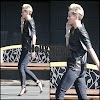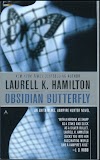I took advantage of the Crimes of the Century meme for November, hosted at Past Offences, to get back into reading the Travis McGee series by John D. MacDonald. This month the year chosen was 1975. The 16th book in the series, The Dreadful Lemon Sky, was published in that year.
For readers not familiar with the Travis McGee series, McGee is essentially a private detective, although he describes himself as a "salvage consultant." He has also been described as a knight errant. He only takes jobs when he needs money; the rest of the time he spends in "retirement."
This story starts when a friend shows up in the middle of the night on Travis McGee's house boat, the Busted Flush. Carrie Milligan met McGee when she was very young (18), and got married shortly thereafter. He loaned her the Busted Flush for her honeymoon. Now, six years later she is back, having divorced her husband three years earlier. She brings with her around 100,000 dollars and asks McGee to hold it for her for a few weeks. If she returns for it, he gets $10,000 for keeping the money safe for her; if she doesn't, he still keeps the $10,000, but his job is to deliver the money to her sister. After some quick checking to satisfy himself that the money is actually hers, he agrees; two weeks later she is dead. McGee takes the Busted Flush to the small town on the Florida coast where she lived and worked .... to see if he can find out what happened.
This is pretty much the standard plot of the books in the series. McGee is approached by a woman needing help. He takes a break from his retirement to provide aid. Most of the books are set in Fort Lauderdale, Florida or other coastal towns.
What makes the books so good is MacDonald's storytelling. I was rereading sections of this book after the first read through, and they are just as good the second time around. There is a quiet humor in the writing.
The characters in the books are well developed and interesting. His male characters are better than the women. The women characters, at least in this book, don't seem to have much depth and are very similar. Besides McGee and his sometimes sidekick Meyer, an economist who also lives on a boat in the harbor, in this book there is also a sleazy but very convincing politician and a very cynical policeman.
Also the setting and sense of place is very well done. I have never been to Fort Lauderdale, but I have been to Florida many times (in the sixties and the seventies). Mostly I visited the Gulf Coast so not exactly the same area and I was too young to see it in the same way he did. MacDonald was very concerned about the commercialization of the area and the damage to the environment.
The books have a good bit of social commentary and philosophy thrown in. I am sure this one of the aspects that attracted me when I first read the series, but some readers grow tired of this. In this book that aspect is not overdone.
I found a shopping center and found that they had left some giant oaks in the parking lot. This runs counter to the sworn oath of all shopping center developers. One must never deprive thy project of even one parking slot.Does this book reflect life in the US in 1975? I would say yes. McGee attends a memorial service for Carrie. He describes some of the people at the gathering:
...I realized anew that there is a new subculture in the world. These were mostly young working people. Their work was their concession to the necessities. Their off-work identities were contra-establishment. Perhaps this was the only effective answer to all the malaise and the restlessness and the disbelief in institutionalized life, to conform for the sake of earning the bread and then to step from the job into almost as much personal freedom as the commune person.When I read that paragraph, it took me back to my first job out of college. I worked and socialized with people like that. Amazing that he got it just right.
One of the elements of the books is that McGee usually (always?) ends up having sexual relations with at least one of the women that feature in the plot. I have read at least three reviews or analyses of this series that discuss the "sex as therapy" element in this series, so I feel I must mention it. I did not dislike that element in this book but I will admit to a bit of discomfort. In this particular case the woman involved with McGee was not so young, and she was using him as much as he was using her. McGee's attitude toward women is a lot like James Bond's, except that McGee often expounds on his attitude towards women, which may be the problem. To be clear, at least in this book, the sex is not graphic or offensive, in my opinion.
I do have an issue with the cover on my paperback edition. On the one hand it has a skull on the cover, on a hundred dollar bill. On the other hand, it shows a helicopter against a lemon yellow sky. I remember nothing about a helicopter in this story. An airplane yes, and it has a lot to do with the plot. I have even read a review that indicates a helicopter is used. I don't want to quote the passage that establishes it is a plane, not a helicopter, because it could be considered a spoiler. But still, why the helicopter on the cover?
-----------------------------
Publisher: Fawcett Gold Medal, 1988 (orig. publ. 1975)
Length: 272 pages
Format: Paperback
Series: Travis McGee, #16
Setting: Florida
Genre: Mystery
Source: I purchased this book.






0 Comments